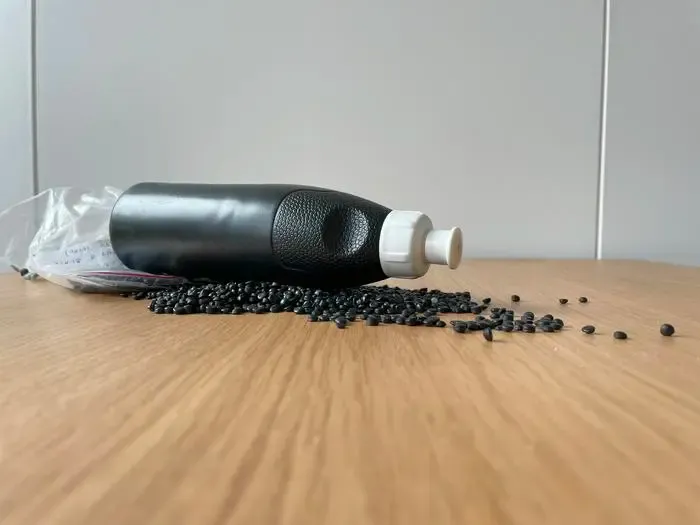Can Recycled Plastics Disrupt Hormonal Systems and Metabolism?

Synopsis
Key Takeaways
- Recycled plastics can contain numerous harmful chemicals.
- Leaching from recycled polyethylene can disrupt hormonal systems.
- Research indicates potential risks to human health.
- Transparency in recycling processes is crucial.
- Global cooperation is needed for effective plastic pollution solutions.
New Delhi, June 23 (NationPress) A recent investigation revealed that a single pellet of recycled plastic may harbor more than 80 distinct chemicals, highlighting concerns that recycled polyethylene plastic can leach harmful substances into water, adversely affecting hormonal systems and lipid metabolism.
The escalating crisis of plastic pollution has reached alarming global proportions, posing serious threats to both the planet and human health. While recycling is often suggested as a viable solution to this crisis, the presence of numerous toxic chemical additives in plastics complicates the situation.
Researchers from the University of Gothenburg and Leipzig emphasize that these hazardous chemicals can inadvertently find their way into recycled goods due to the lack of transparency regarding the substances used in plastics.
A study published in the Journal of Hazardous Materials involved purchasing recycled polyethylene pellets from various global sources and immersing them in water for 48 hours.
Subsequently, zebrafish larvae were exposed to this water for five days. Findings indicated elevated gene expression linked to lipid metabolism, adipogenesis, and endocrine regulation in the larvae.
“This brief leaching and exposure period serves as yet another warning regarding the risks chemicals in plastics pose to living organisms. The effects we observed can potentially alter the physiology and health of aquatic species,” stated Azora Konig Kardgar, lead author and ecotoxicology researcher at the University of Gothenburg.
Prior studies have indicated similar risks for humans, including threats to reproductive health and increased obesity rates stemming from exposure to toxic plastic chemicals.
Many additives and contaminants found in plastics are recognized for their potential to disrupt hormonal balance, negatively impacting fertility, child development, and contributing to specific cancers and metabolic disorders like obesity and diabetes.
“This uncertainty surrounding the chemicals present in recycled plastic is a significant barrier to effective recycling. There is a considerable risk of chemical interactions that could render recycled plastics hazardous,” remarked Bethanie Carney Almroth, a professor at the University of Gothenburg and project principal investigator.
As representatives from around the world prepare to convene in Geneva, Switzerland, this August for what is anticipated to be the final negotiation session for a Global Plastics Treaty under the United Nations Environmental Program, the urgency of addressing these concerns has never been clearer.










